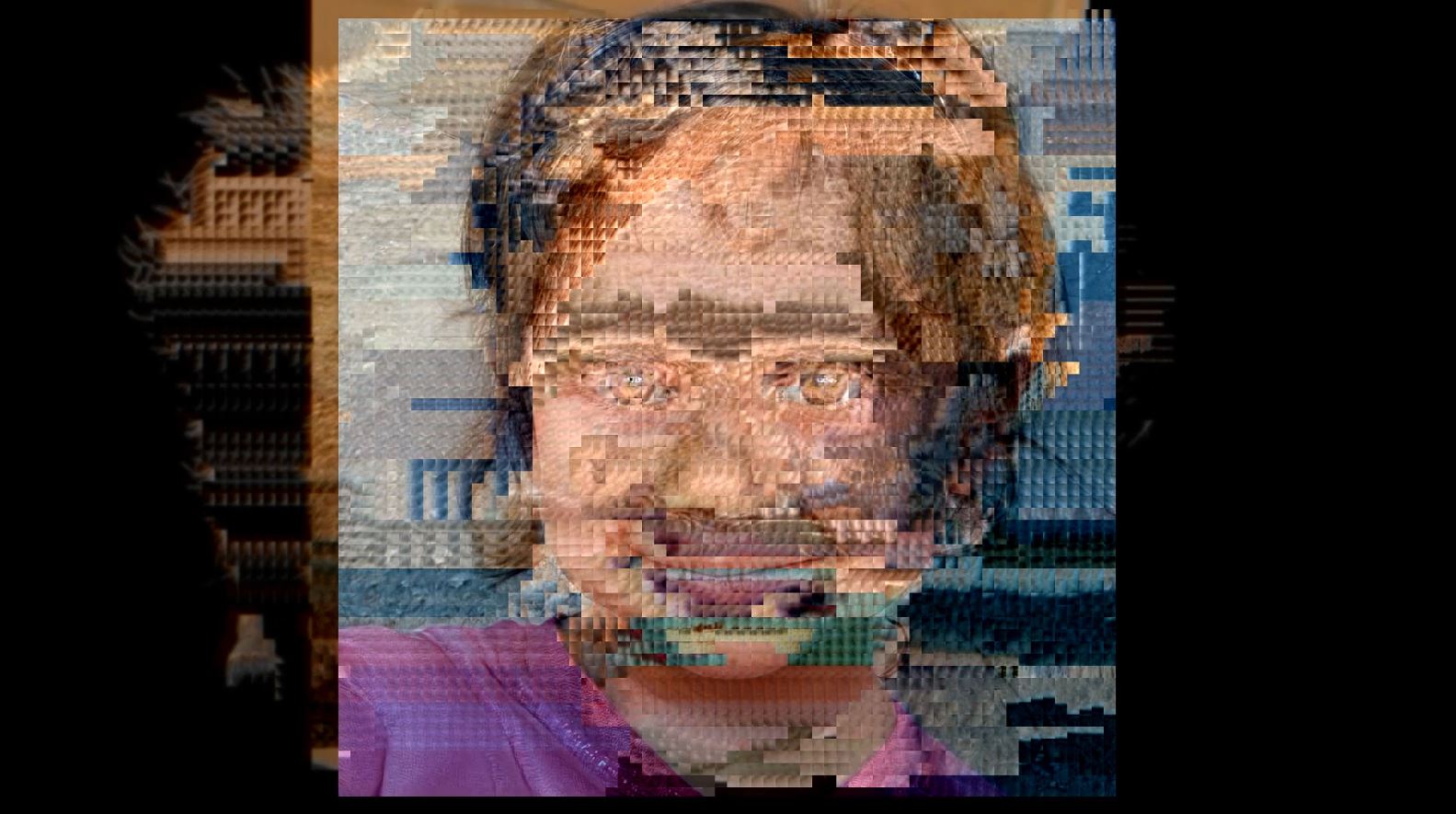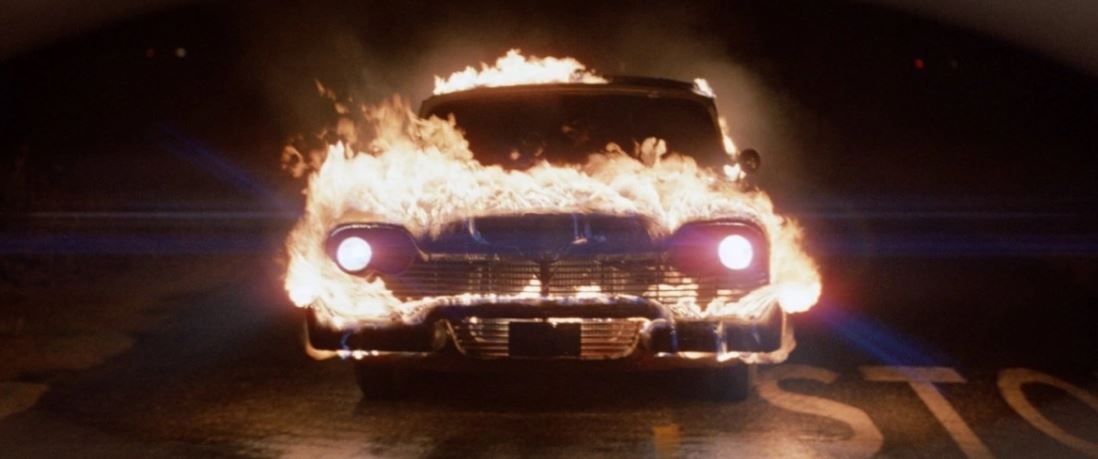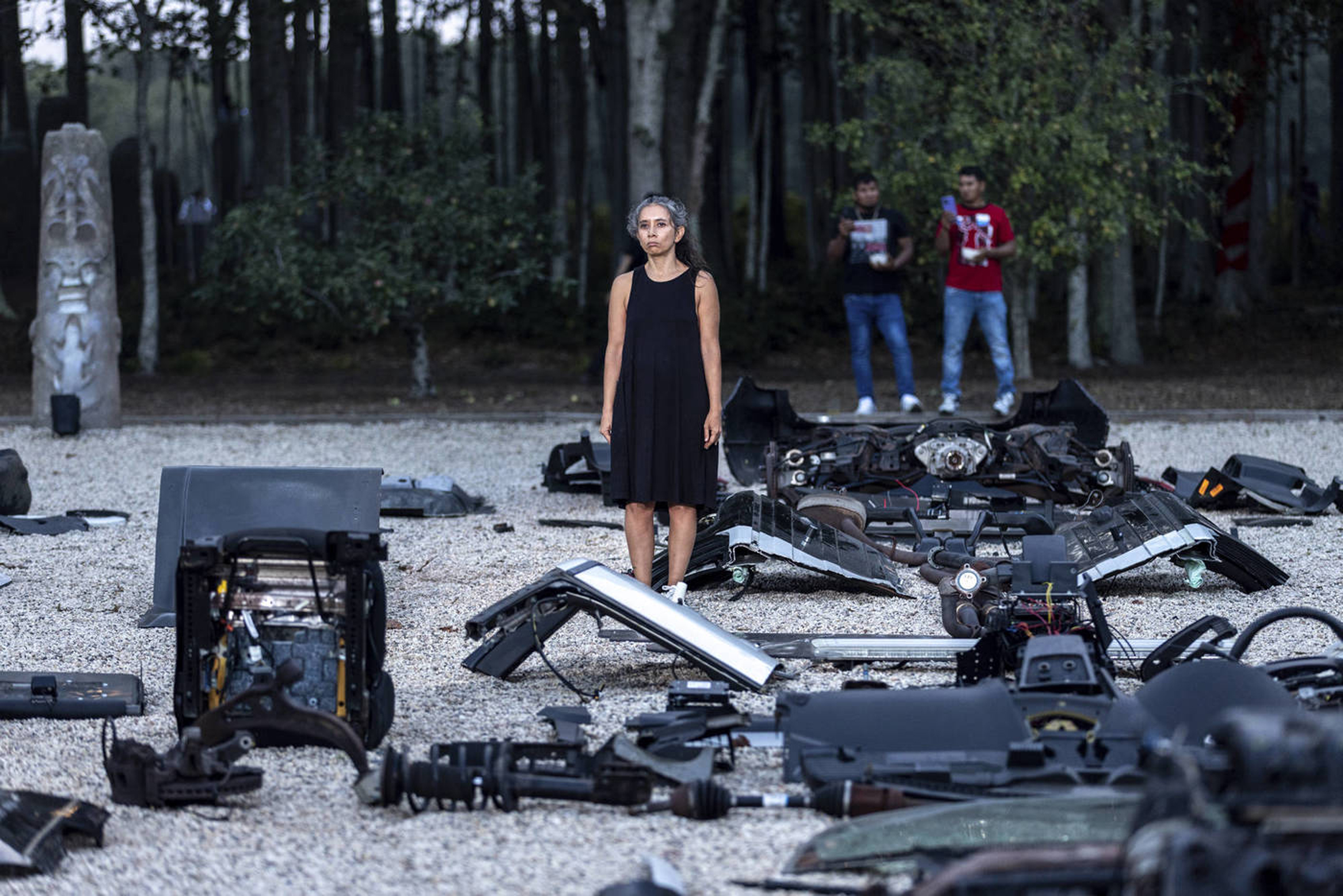
The Loop Festival landed this morning at Casa SEAT in Barcelona, which was the setting for a reflection on technology, cinema and the future. Between cars and algorithms, the American artist and filmmaker John Menick , accompanied by Manuel Cirauqui, director of einaidea, and Blanca Pujals , researcher and architect, presented 'Autoextinction' and 'The Self-Moving Image'.
The question that opened the debate was as intriguing as it was disturbing: what will happen to road movies when there are only autonomous cars? This question, which calls into question the future of a cinematographic genre rooted in freedom and risk, connects directly with the themes of Menick's film. 'Autoextinction' draws a dystopian future, where three artificial intelligences, apparently alone on Earth, lament and doubt the past. Have they been responsible for the extinction of all human life? The images that accompany this dialogue are fragmented, corrosive, a digital collage of lost memories: sports, pornography, commercials, war scenes. Everything is frantic and it's like a panic attack turned into a movie, a critique of blind trust in machines.
What if artificial intelligence was not an evolutionary adaptation but a mistake? Is technology the Trojan horse we have built for our own destruction?
Over the years, Menick has established himself as a key figure in essay cinema and an explorer of the impact of technology on contemporary visual culture. During the presentation at Casa SEAT, fragments of films focused on the autonomy of machines and dehumanization, such as Christine (1983), Demolition Man (1993) and Minority Report (2002), have served as a bridge to a reflection on the disappearance of the automobile as we know it.

During the conversation afterward, Menick pointed out that self-driving vehicles aren't really self-driving. Who drives is the corporations that manage their data and systems, a power concentrated in a few hands that redefines the economics of transportation. New York's yellow cabs aren't what they used to be; the city, once discovered from behind the wheel, now relies on GPS-guided Ubers. But what happens when the system fails and the driver, more dependent than it seems, is lost without the digital coordinates?
Currently, according to the classification of the Society of Automotive Engineers (SAE), the levels of autonomous driving are divided into six categories, from 0 to 5, with level 5 being the maximum, with vehicles completely independent and without the need for human intervention. For now, the most advanced cars in existence correspond to level 4. Although level 5 vehicles promise to be safer than those driven by people, this evolution will lead to significant losses: employment, income and a lifestyle linked to manual transport . Taxi and lorry drivers are the last working-class professions to disappear, and it is not entirely clear what the future impacts on society will be, although the turn to fascism and the anguish of economic loss are palpable realities that he directly links to this technological change.
Menick adds that at first, no one asked for the car. It wasn't that society was tired of horses and looking for a mechanical version of them. In the same way, fully automated vehicles do not respond to an urgent social need either; they are rather a science fiction idea that has imposed itself in the technological discourse, but which is not essential.

After almost two hours of presentation and discussion about the catastrophes and the rampant path we seem to be on, an uncomfortable question from the audience: why does artificial intelligence not inspire utopian stories? Why do we always project a future where machines surpass us or destroy us? Menick does not offer definitive answers, but 'Autoextinction' is a forceful reflection of his critical and disenchanted gaze.
Perhaps, like the AIs in his film, we are stuck in a cycle of fear and power, unable to predict whether or where artificial intelligence will lead us to disaster. What is certain is that, in a few years, we will lose the ability to drive cars because it will no longer be necessary for us. The real challenge will therefore be not to lose control of our own narrative.








